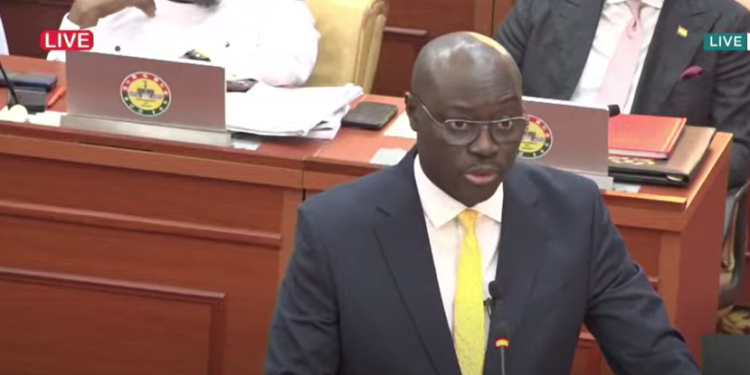Finance Minister Dr. Cassiel Ato Forson has launched a scathing critique of the previous New Patriotic Party (NPP) administration’s approach to financial sector reform, contrasting it sharply with the Mahama government’s strategy to rescue and revive the National Investment Bank (NIB).
“Mr Speaker, let me state this, unlike the previous administration, we chose to spend to save a bank rather than spend to collapse a bank,” Dr. Forson declared on Thursday, July 24, while delivering the 2025 Mid-Year Budget Review in Parliament.
Highlighting what he described as a carefully executed rescue plan, the Finance Minister revealed that the Mahama administration had successfully recapitalised NIB through what he called “an ambitious and credible plan” to restore the bank’s profitability and long-term viability.
Key elements of the government’s intervention include:
– A direct capital injection of GH¢450 million
– Issuance of GH¢1.5 billion in re-marketable bonds
– Transfer of GH¢500 million worth of government shares in Nestlé Ghana Limited to NIB
Dr. Forson explained that these decisive actions had significantly improved the bank’s health, raising its capital adequacy ratio from a dire -51.13% in December 2024 to a solid 23% by May 2025.
“By taking these major steps, we have preserved depositors’ funds valued at GH¢6.4 billion. We have also saved over 900 direct jobs at the NIB. We have preserved an indigenous Ghanaian bank,” he announced.
He reassured Ghanaians that NIB has not only been stabilised but has also regained full operational strength and liquidity.
“I want to use this opportunity to assure the people of Ghana that our indigenous bank, the NIB, is now prime for business. More importantly, NIB is back, NIB is now liquid, NIB is now safe, NIB is fully capitalised. We therefore encourage all and sundry to do business with the NIB,” Dr. Forson stated.
The Minister’s remarks underscore the administration’s broader narrative of fiscal responsibility, national ownership, and institutional preservation—directly challenging the legacy of bank collapses and job losses that plagued the financial sector under the previous government’s controversial clean-up exercise.


